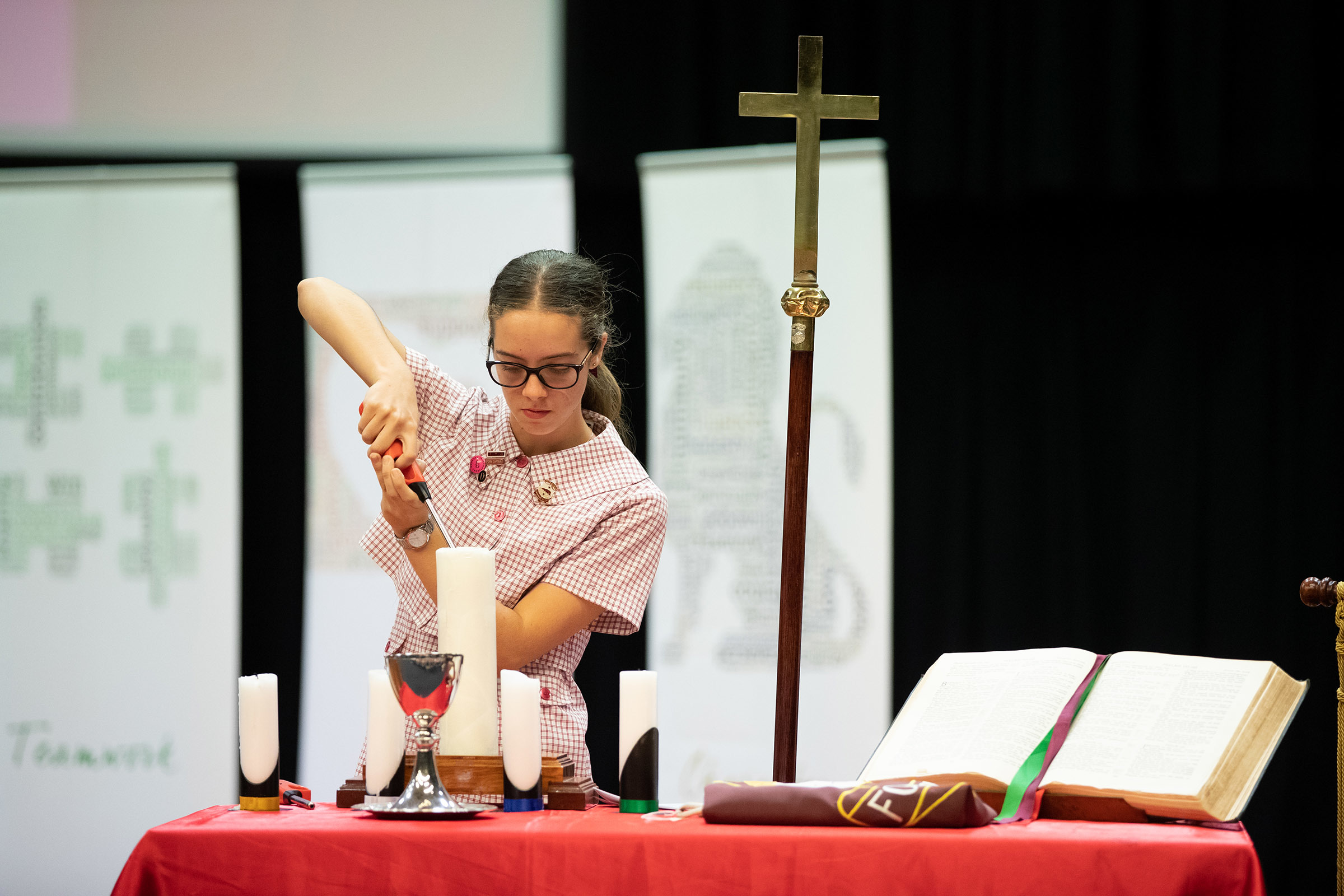Wellbeing
Pastoral care approachPastoral care approach
Aligned with the Hearts and Minds wellbeing framework and focussed on the holistic development of each student, pastoral care at MBC is seen as a collaborative partnership between students, parents and carers, and staff.
By fostering the development of positive relationships between all stakeholders, we create a community where girls feel safe, valued, connected and have a strong sense of belonging. This approach is reflected in the College’s Positive Behaviour Policy and seeks to optimise the wellbeing of each girl, and, in turn, her individual growth and success.

Primary
In the Primary years, the International Baccalaureate programme ensures positive attributes and attitudes are embedded throughout the curriculum. Within a Christian context, we aim to create an environment in which students can achieve their academic and personal potential. We encourage students to develop a sense of personal integrity and responsibility towards themselves and others. Most importantly, we work to ensure students develop a sense of care, respect and compassion for one another. All programmes are supported by the Deputy Head of Primary (Students)and Primary Psychologist.

Secondary
Pastoral care in the Secondary years is formally provided via a vertically structured House system and a wellbeing curriculum called the Positive Minds programme. Girls belong to one of four Houses – Wesley, Whitfield, Alison Greene or Drewe – with each house consisting of eight Form Classes. The Form Class is the first point of contact in the school day and is made up of three to five girls from each year level and a Form Teacher. The Head of House has oversight of the pastoral care of the girls in each House, and works in partnership with the College Counsellor and the Deputy Head of Secondary (Students). The vertical House system is designed to provide opportunities for each girl to build positive relationships with her peers, across year levels and with staff, thus ensuring she has a strong support network at school.
The Positive Minds programme is a carefully sequenced, developmentally appropriate wellbeing curriculum which extends from Year 7 to 12, with one lesson timetabled per week for each year level. Coordinated by the College Counsellor, the programme is mapped against the Hearts and Minds wellbeing framework and draws on best practice in the social-emotional development of adolescents.